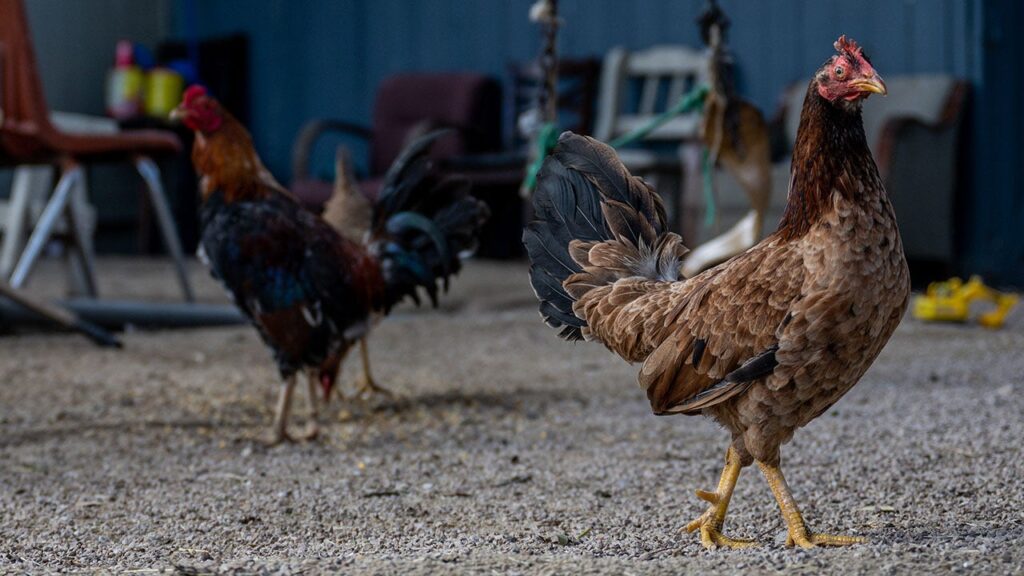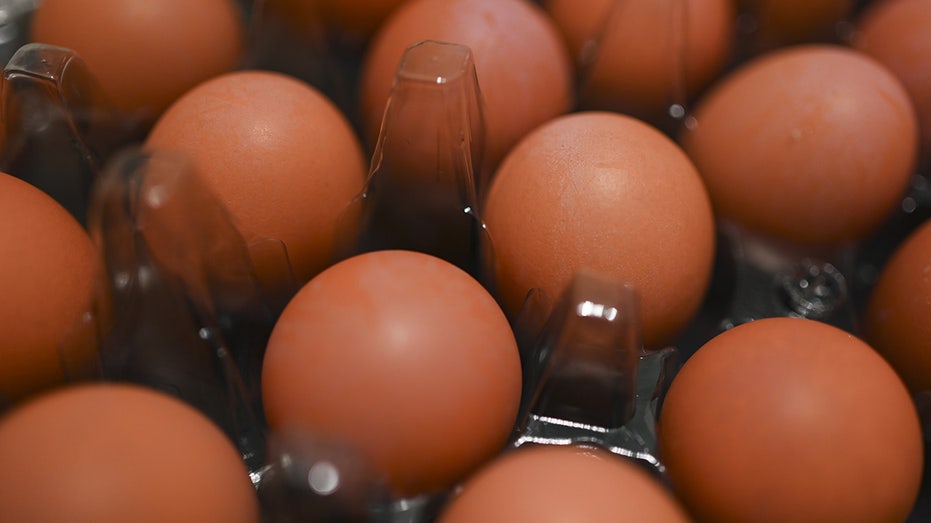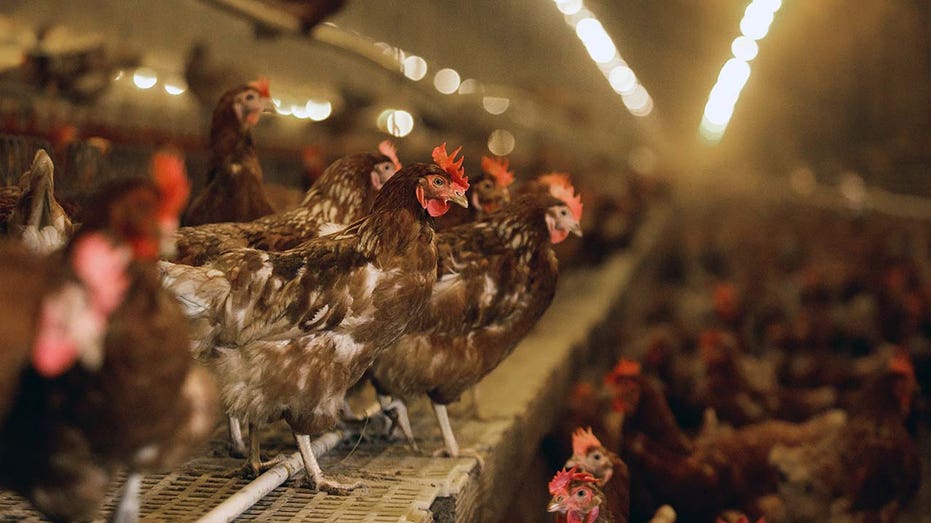
Vice president of Eggs Unlimited Brian Moscogiuri explains why egg prices will continue to soar as the bird flu outbreak slows production.
The federal government granted animal health company Zoetis a conditional license for its avian influenza vaccine for use in chickens as bird flu outbreaks continue to devastate flocks across the country, affecting the nation’s egg supply.
The Agriculture Department’s Center for Veterinary Biologics (CVB) issued the conditional license for the company’s H5N2 avian influenza vaccine based on « demonstration of safety, purity, and reasonable expectation of efficacy based on serology data. »
H5N2 is a different subtype than the H5N1 subtype that is causing outbreaks in poultry and U.S. dairy cows, with several recent human cases in U.S. dairy and poultry workers, according to the Centers for Disease Control and Prevention (CDC). However, the news is still giving farmers hope.
More than 150 million birds – including those in backyard and commercial flocks in the U.S. – have been affected by the virus since February 2022, according to the USDA’s Animal and Plant Health Inspection Service (APHIS).
INCLUDING IN BACKYARD AND COMMERCIAL FLOCKS.
When a new strain of bird flu was identified in early 2022, Mahesh Kumar, senior vice president of global biologics research and development at Zoetis, said the company’s scientists « immediately began work » to update its previous avian influenza vaccine.
These licenses are issued when there is an « emergency condition, limited market, local situation or other special circumstance, » according to Zoetis. While they are issued for a finite period of time, they can be renewed by CVB.

Eggs are seen as shelves are emptied in some markets due to the egg crisis in Virginia on Feb. 12, 2025. (Celal Gunes/Anadolu via Getty Images / Getty Images)
EGG PRICES AREN’T COMING DOWN ANYTIME SOON, EXPERTS SAY
This marks the fourth year that the virus has crippled farmers, with outbreaks continuing to emerge into early 2025. After the virus is detected, farms are instructed to kill their entire flocks to eradicate the disease, which significantly disrupts supply and raises the cost of eggs in the U.S. food system.
The USDA said the disease is highly contagious, with one bird being capable of spreading it « from flock to flock within a matter of days. » Depopulating or euthanizing affected animals is « one of the most effective ways to stop disease spread and protect U.S. animal health as a whole, » the agency said.

The USDA said the disease is highly contagious, with one bird being capable of spreading it « from flock to flock within a matter of days. » (Photographer: Mary Kang/Bloomberg via Getty Images / Getty Images)
Chad Gregory, CEO of United Egg Producers, a farmer-owned cooperative that represents the majority of U.S. egg producers, said he is « encouraged by developments in vaccine strategies for highly pathogenic avian influenza, » including Zoetis’ recent announcement of the conditional use license and early successes with bird flu vaccines in other countries.
Still, he noted that there is still a lot of work left to do, such as getting the government to authorize the vaccine’s use as well as address trade implications before a vaccine can be deployed in the U.S.
GET FOX BUSINESS ON THE GO BY CLICKING HERE
Bernt Nelson, an economist with the American Farm Bureau Federation, told FOX Business that the group supports research to develop a safe and effective vaccine for bird flu, but until that happens, containing the spread of the virus will remain a « priority. »
« America’s farmers are committed to ensuring a safe and abundant food supply, and they take the threat of HPAI seriously, » Nelson said, adding that « strict biosecurity measures on the farm and the depopulation of infected birds are evidence of the extreme lengths farmers go to protect the health of the national flock and the American public. »
